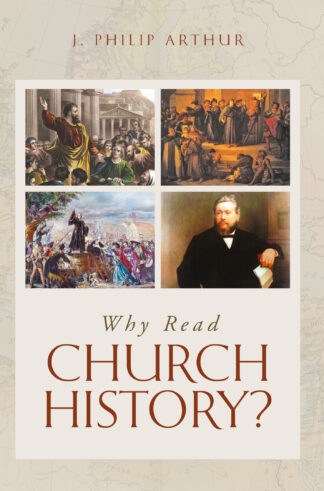Pitfalls to Avoid in Reading Church History
The following is an excerpt from Why Read Church History1 by J. Philip Arthur
It is fatally easy to develop an uncritical admiration for our heroes, but no one is beyond criticism. One of the most refreshing things about the Bible is that it never conceals the faults of God’s servants. There are numerous examples we could mention, of people who reached extraordinary levels of moral and spiritual eminence who nevertheless had a character flaw that was exposed. For example, our admiration for all that King David achieved is tempered by our knowledge of his adultery with Bathsheba. Similarly, despite the apostle Peter’s importance in the early days of the Christian church no attempt is made to cover up his betrayal of Jesus. The sheer honesty of the way the Bible handles the lives of its great men and women in general is all the more important when we encounter the Lord Jesus Christ, the one figure who is portrayed with a flawless character.
With the example of Scripture before us, our assessment of the great Christians of the past must be sane. Some evangelical biographies come perilously close to hagiography and are as uncritical and adulatory as some lives of the saints written in Medieval times. Yet even the best of men are only men at best, and we do well to remember it. Even as we challenge our own hearts to imitate the consecration, dogged courage, and unremitting labours of the saints of long ago, we must be mentally ready to recognise their mistakes and resolve to avoid them.
For the same reason, the doctrinal legacy of an earlier generation of Christian teachers should never be swallowed whole. Our admiration for Luther’s recovery of the doctrine of justification by faith alone should not blind us to the fact that the great German reformer could not abandon the idea that the body of Christ was, in some sense, physically present in the bread eaten at the Lord’s Table.
Many of us are grateful for Augustine’s contribution to succeeding generations of Christian teachers. The story of the way this tormented and wayward genius came to faith in Christ in a garden in Milan is fascinating. As a young man, he had thrown himself into a life of pleasure. He had crossed every boundary in his quest for fulfilment. He had even flirted for a time with an extreme religious cult. Now, approaching middle age, he was desperate. For all that he was one of the foremost academics of the age, satisfaction eluded him and he could not control destructive habits learned in his teens. Drifting over the garden wall, he heard the voice of a child: ‘Pick it up and read it, pick it up and read it …’ On the ground before him, lay the Epistle to the Romans. He opened it at 13:13-14. In a moment, his world was turned upside-down and his massive intellect was recruited for the Christian cause. The story of his conversion was recounted in his Confessions which were written between 397 and 398 a.d., perhaps the first Christian autobiography ever written. Many modern believers are also very appreciative of the doughty stand that Augustine took against the British monk Pelagius, when he defended the Bible’s teaching on the sovereignty of God and free grace. But at the same time, we would do well to bear in mind that his arguments in favour of compelling the Donatists1
to conform gave some credibility to later Roman Catholic arguments in favour of persecuting heretics, including Protestants.
Surely the vital thing is to cultivate the Berean spirit (Acts 17:11), a readiness to give a patient hearing to the teachers of the past, but to scrutinise all that they said in the light of God’s word. In other words, we apply to the teachers of the past the same test that we would use for the teachers we admire today. Only Scripture is infallible.
Join our e-newsletter to hear about our upcoming promotion.
Notes

price From: £1.50Description
The following is an excerpt from Why Read Church History1 by J. Philip Arthur It is fatally easy to develop an uncritical admiration for our heroes, but no one is beyond criticism. One of the most refreshing things about the Bible is that it never conceals the faults of God’s servants. There are numerous examples […]
A selection from Why Read Church History? by J. Philip Arthur
Latest Articles
On the Trail of the Covenanters 12 February 2026
The first two episodes of The Covenanter Story are now available. In an article that first appeared in the February edition of the Banner magazine, Joshua Kellard relates why the witness of the Scottish Covenanters is worthy of the earnest attention of evangelical Christians today. In late November of last year, on the hills above […]
A Martyr’s Last Letter to His Wife 11 February 2026
In the first video of The Covenanter Story, which releases tomorrow, we tell the story of James Guthrie, the first great martyr of the Covenant. On June 1, the day he was executed for high treason, he coursed the following farewell letter to his wife: “My heart,— Being within a few hours to lay down […]

